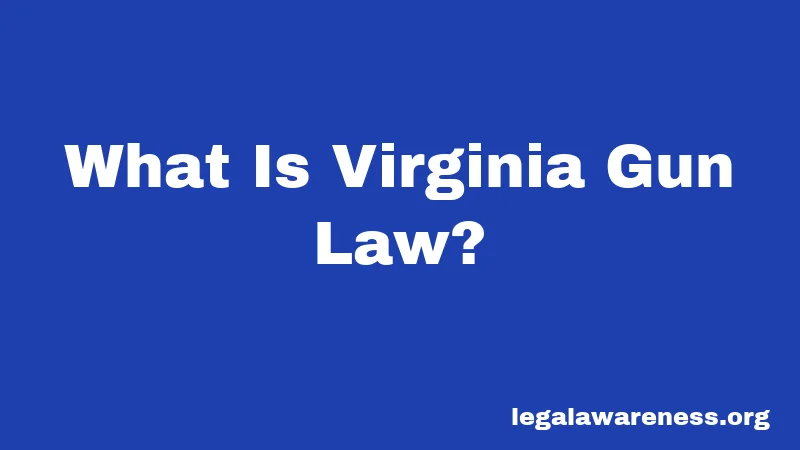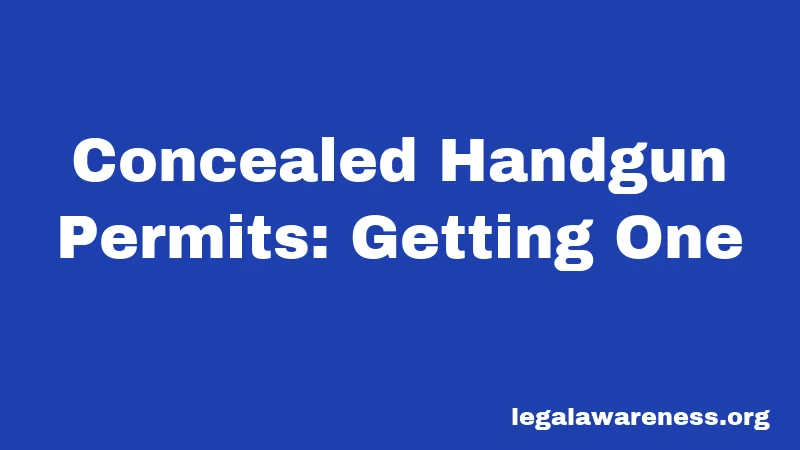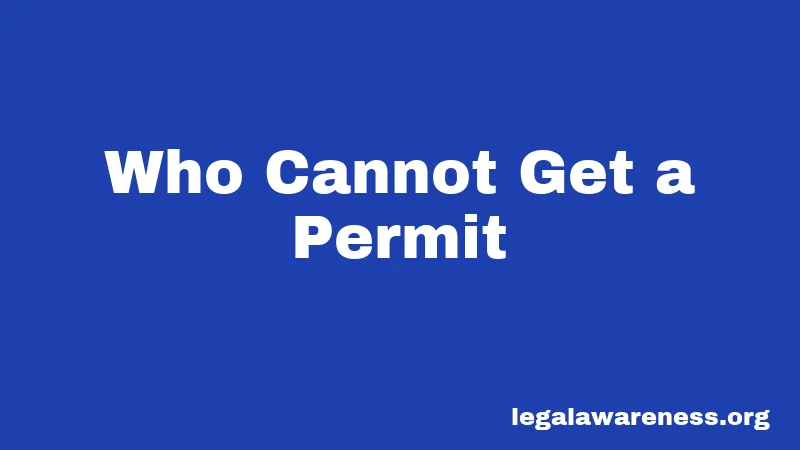Virginia Gun Laws (2026): What You Actually Need to Know
Most people have no idea how their state’s gun laws work. Seriously. But if you live in Virginia, it’s time to get educated. Virginia gun laws are actually pretty reasonable compared to some states. Still, they have some specific rules you need to follow. Here’s what every Virginia gun owner should know.
What Is Virginia Gun Law?

Virginia’s gun laws are found in the Virginia Code, specifically sections 18.2-279 through 18.2-311. These laws cover who can own firearms, where you can carry them, and what types of guns are legal. The good news? Virginia is relatively gun-friendly. The state allows open carry for most people and has a straightforward concealed handgun permit system. But there are restrictions, and you need to know them.
Open Carry: The Basics
Here’s the simple part. You can openly carry a handgun in Virginia without a permit if you’re 18 years old or older. Yep, that’s all you need age-wise.
But wait, there’s more to know. Certain places are off-limits for open carry. Schools, courthouses, air carrier terminals, and child day care centers are no-go zones. The Virginia state capitol and surrounding capitol square are also prohibited areas.
Private property owners can ban open carry on their land too. Just because something’s legal doesn’t mean it’s allowed everywhere. Stay with me here. If a business or property owner posts a sign saying no firearms, you need to respect that.
Concealed Handgun Permits: Getting One

Want to carry concealed? You’ll need a permit. Virginia makes this process pretty straightforward. Good news right there.
You need to be at least 21 years old to apply. You must be a Virginia resident (or military member stationed here). The permit lasts five years, then you renew it.
Here’s the application process. You go to your county or city circuit court clerk’s office. You fill out an application. There’s a $50 fee. Pretty basic so far.
But there’s one requirement that trips people up. You need to prove you know how to handle a handgun safely. This is called “demonstrating competence.” You can do this several ways. Complete an NRA firearms safety course. Finish a hunter education class. Take a police training course. Join a firearms competition and show results. Even completing in-person firearms training from a certified instructor counts.
The court reviews your application. They run a background check. If you’re good, you get your permit. Processing usually takes up to 45 days. You get the permit in the mail. Done.
Here’s Where It Gets Important
You must carry your permit with you whenever you carry concealed outside of your vehicle. Always. And if a police officer asks to see it, you have to show it plus a government photo ID.
Don’t think you can skip this step. Carrying concealed without your permit is illegal, even if you have one at home.
Who Cannot Get a Permit

Virginia has specific disqualifications. Let me break them down so there’s no confusion.
You can’t get a permit if you’ve ever been convicted of a felony. This includes felony DUI convictions. If you were convicted as a juvenile of something that would be a felony as an adult, same rule applies.
Having multiple misdemeanor convictions in the past five years disqualifies you too. Specifically, if you have two or more misdemeanors (and at least one is a Class 1 misdemeanor), the court can deny you. The judge has discretion here, but it’s tough to overcome.
Substance issues matter. If you’re addicted to controlled substances or are an unlawful user of marijuana, you’re disqualified. Public drunkenness convictions in the past three years also count against you.
Mental health issues are considered. If you’ve been involuntarily committed to a psychiatric facility, or a court found you legally incompetent, you’re barred. There are some exceptions, though. You might be able to restore your rights through the courts.
The court can also deny you if they believe you’ll use a firearm unlawfully or recklessly. This is pretty broad language, but it’s designed to keep guns away from people who might hurt someone.
Non-Residents: You Can Get a Permit Too
Wondering if this applies to you? If you live outside Virginia but want to carry here, yes, you can get a permit.
Non-residents apply directly to the Virginia State Police. You mail your application to the Firearms Transaction Center. The fee is up to $100. You still need proof of competence with a handgun using the same methods as residents.
Processing works the same way. You get background checked. If approved, you get a five-year permit. Simple as that.
You can get a non-resident permit even if you just moved to Virginia. You don’t have to wait to establish residency first.
Reciprocity: Will Other States Honor Your Virginia Permit?
This one matters if you travel. Virginia honors concealed carry permits from 36 states. That’s pretty broad coverage.
But here’s the catch. Not every state honors Virginia permits in return. Some states are reciprocal. Others aren’t. Before you travel with your firearm, check the laws of the state you’re visiting. Seriously.
Virginia also recognizes concealed carry permits from other states. If you’re visiting Virginia with an out-of-state permit, it’s valid here. You just need your permit and a government-issued photo ID.
Buying Firearms in Virginia
Let’s talk about purchasing. The rules are straightforward.
You must be at least 18 years old to buy rifles or shotguns from a licensed dealer. For handguns, you need to be 21 (federal law, not just Virginia). A licensed dealer will run a background check. They check federal and state criminal histories. If you pass, you get the gun.
Here’s what changed recently. As of October 2025, Virginia is no longer requiring background checks for private sales between individuals. This was previously required, but a court ruling stopped the requirement. Now, if you buy a gun from another private Virginia resident, no background check is needed.
That said, Virginia still requires background checks for dealer sales. If you buy from a licensed firearms dealer, they handle the background check.
One more thing. Virginia has a one-handgun-per-month limit. You can’t buy more than one handgun in a 30-day period. There’s an exception: concealed carry permit holders are exempt from this restriction. You can buy as many as you want if you have a permit.
Prohibited Firearms: What You Can’t Own
Not all guns are legal in Virginia. Know what’s off-limits.
Plastic firearms are completely banned. These are guns that don’t contain enough metal to be detected by airport security machines. If it’s mostly plastic, it’s illegal.
Sawed-off shotguns are illegal. Sawed-off rifles too. These are shotguns or rifles with barrels shorter than 18 inches (for shotguns) or 16 inches (for rifles).
The Armsel Striker shotgun is specifically banned. This gun also goes by “Striker 12.”
Machine guns? They’re heavily regulated. You need to register them. Most people can’t legally own newly manufactured machine guns due to federal law, but older registered ones are allowed with proper registration.
Regular rifles with high-capacity magazines are legal. Handguns with large magazines are legal. Virginia has no magazine capacity limits. You can carry magazines with 30 rounds, 50 rounds, or more.
Here’s something that surprises people. Polymer frame pistols like Glocks are totally legal. They’re not plastic firearms in the prohibited sense. Glocks have metal parts in the key components. They’re fine.
Where You Can’t Carry
Hold on, this part is critical. There are places where firearms are flat-out prohibited.
You cannot carry in schools. This includes public and private schools. Violating this can be serious.
Courthouses are off-limits. Think about the armed security there. That’s a big clue.
Child day care centers prohibit firearms. Makes sense for safety reasons.
Air carrier terminals are federal no-go zones. You can’t bring a gun into the airport terminal or any secured area.
The Virginia state capitol and surrounding capitol square ban firearms. Government buildings also have restrictions. If Commonwealth employees work there doing official duties, firearms are prohibited.
Many colleges and universities prohibit firearms on campus, although opinions from the Attorney General suggest students and faculty may be able to carry on open grounds outside buildings.
Some churches prohibit firearms, though it’s not a blanket state rule. Check with the church first.
Private property owners can prohibit firearms on their land. If a business posts a sign, respect it. Trespassing while armed is worse than just trespassing.
Some localities have additional restrictions. Alexandria and Newport News ban open carry in certain areas. Always check local ordinances where you live.
Penalties and Consequences
What happens if you break these laws? It depends on what you did.
Carrying a concealed handgun without a permit is a Class 1 misdemeanor. That’s the most serious misdemeanor in Virginia. You could face jail time and fines.
Owning a plastic firearm is a Class 3 felony. On your second offense, it becomes a Class 4 felony. This is serious criminal territory.
Possessing a sawed-off shotgun is a felony. Same with the Armsel Striker.
Carrying a gun into a school is a Class 6 felony. First offense. Subsequent offenses are more serious.
Carrying firearms into prohibited government buildings can result in felony charges. It depends on which building and the circumstances.
The penalties vary. Misdemeanors can mean up to 12 months in jail. Felonies mean much longer prison sentences. Plus, you’re looking at fines that could be hundreds or thousands of dollars.
Here’s something important. A gun conviction affects your gun rights forever in some cases. Felony convictions mean you permanently lose your right to own firearms. Even a serious misdemeanor can haunt you for years.
Special Situations: Transfers and Lost Guns
Not sure what counts as a violation? Let me break down some special situations.
If you gift a firearm to someone else, there’s no formal transfer process in Virginia for private gifts. But the recipient must be legally eligible to own a gun. If they’re a felon or prohibited person, you can’t give them the gun.
If you lose your firearm or it gets stolen, Virginia law requires you to report it within 48 hours. Tell local law enforcement. Don’t just hope it shows up. Report it.
Domestic violence is a special case. If you’re subject to a protective order due to domestic abuse, you must surrender your firearms within 24 hours. You can sell them to a licensed dealer, give them to someone else who can legally own them, or surrender them to police. There are no exceptions here.
People on the Voluntary Do Not Sell Firearms List can’t purchase guns. If you voluntarily put yourself on this list, dealers won’t sell to you.
Military members stationed in Virginia can apply for resident permits. You don’t have to wait to get residency established. Same with military families.
How to Transport Firearms Safely
Okay, pause. Read this carefully.
Transporting firearms through Virginia is legal if done properly. Keep your firearm secured in a vehicle container or locked compartment. Don’t have a loaded firearm sitting on a car seat. That’s asking for trouble.
If you’re traveling to another state with a firearm, research that state’s laws first. What’s legal in Virginia might be illegal across the border. Transport your gun unloaded and locked.
In your vehicle, a locked container counts. A center console doesn’t. A glove compartment might, depending on how it locks. When in doubt, get a small lockbox for your vehicle.
Recent Changes (2025-2026)
The gun law landscape in Virginia shifted in 2025. Stay with me. The big change? Private sale background checks are no longer available or required as of October 2025. A court ruling stopped this requirement.
This means Virginia residents can legally conduct private gun sales without going through a dealer or background check. Licensed dealer sales still require background checks. This change is significant for gun rights in the state.
Proposed legislation for 2026 could bring new restrictions. Anti-gun advocates are discussing potential bans on certain rifles and large-capacity magazines. Nothing is law yet, but it’s worth staying informed.
Frequently Asked Questions
Can I carry a gun while hunting in Virginia? Yes. A valid concealed handgun permit allows you to carry while hunting. Or you can openly carry without a permit if you’re 18 or older. Just follow hunting season rules.
Do I have to tell a police officer I have a gun during a traffic stop? Virginia law doesn’t require you to volunteer this information. But if you are carrying and the officer asks for identification, you must show them your permit when you present your photo ID.
Can I legally open carry my handgun in all Virginia counties? Mostly yes. Open carry is legal statewide for anyone 18 or older who can legally possess a firearm. Some cities like Alexandria have additional restrictions. Check your local area.
What’s the penalty for carrying concealed without a permit? It’s a Class 1 misdemeanor. You could face up to 12 months in jail and fines. It’s a serious charge.
How long does a concealed handgun permit last? Five years. You’ll get a notice 90 days before expiration. You can renew up to 180 days after it expires.
Final Thoughts
Virginia gun laws are actually pretty user-friendly compared to many states. You can open carry at 18. You can get a concealed permit at 21 with reasonable training requirements. The state respects gun ownership rights while maintaining basic safety rules.
The key is knowing the rules and following them. Get your permit if you want to carry concealed. Don’t carry in prohibited places. Report lost or stolen guns. Follow the rules on prohibited firearms.
Stay informed, especially as new legislation develops. Reach out to the Virginia State Police Firearms Transaction Center if you have specific questions. They can’t give legal advice, but they can help with applications and basic information.
Now you know the basics. Stay informed, stay safe, and when in doubt, look it up or consult a lawyer.
References
- Virginia State Police – Concealed Handgun Permits: https://vsp.virginia.gov/services/firearms/resident-concealed-handgun-permits/
- Virginia State Police – Firearms FAQ: https://vsp.virginia.gov/services/firearms/faq/
- Virginia Code § 18.2-308.02 – Concealed Handgun Permits: https://law.lis.virginia.gov/vacode/title18.2/chapter7/section18.2-308.02/
- Virginia Code § 18.2-308.5 – Plastic Firearms Prohibition: https://law.lis.virginia.gov/vacode/title18.2/chapter7/section18.2-308.5/
- Virginia Code § 18.2-308.06 – Nonresident Permits: https://law.lis.virginia.gov/vacode/title18.2/chapter7/section18.2-308.06/
- Virginia State Police – Nonresident Concealed Handgun Permits: https://vsp.virginia.gov/services/firearms/nonresident-concealed-handgun-permits/
- Firearm Purchase Eligibility Test – Virginia State Police: https://vsp.virginia.gov/services/firearms/purchase-eligibility-test/
- Virginia General Assembly – House Bill 2 (Background Checks): https://lis.virginia.gov/
- Everytowns Gun Law Tracker – Virginia: https://everytownresearch.org/rankings/state/virginia/
